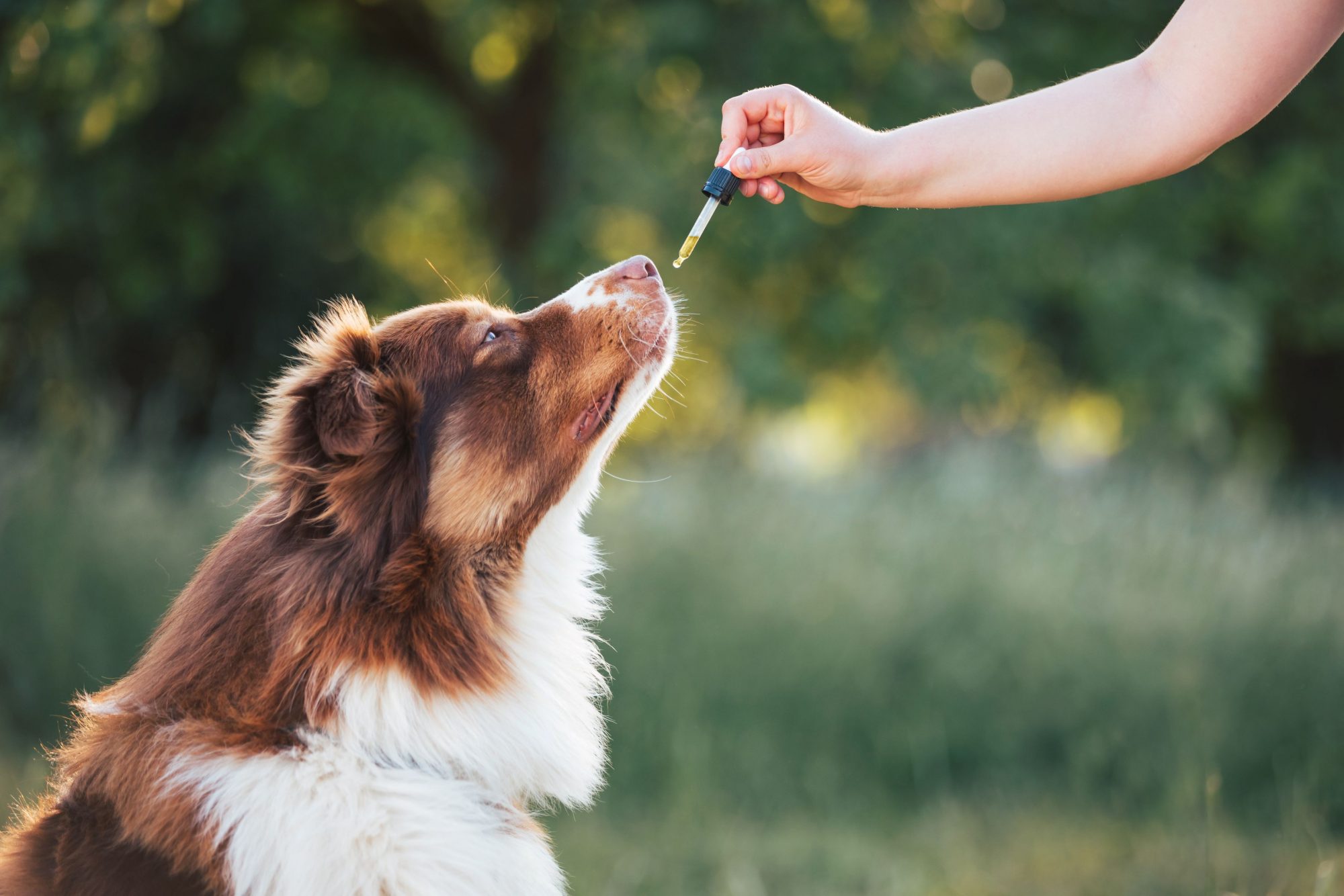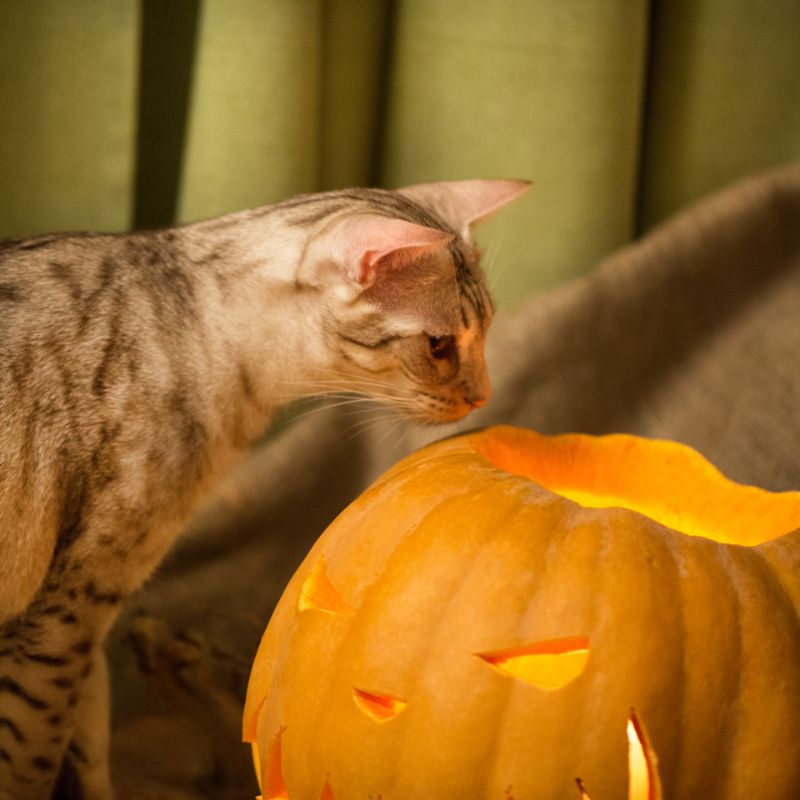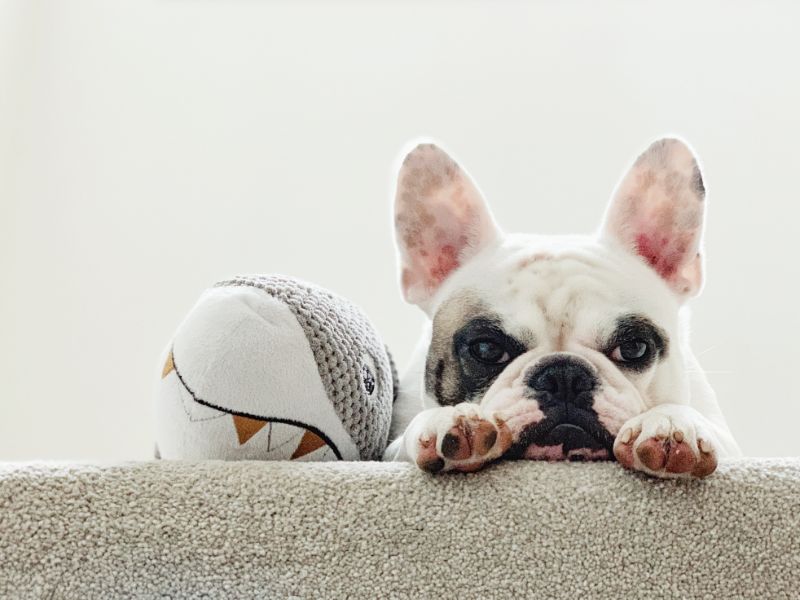Posts Tagged: Anxiety in Pets
Alternative Remedies for Anxiety in Pets

No one wants their pets to be anxious or stressed, yet anxiety in one form or another is not an uncommon diagnosis at The Bluffs Pet Clinic. While it may not seem like your pet has a whole lot to worry about, anxiety in pets can cause real problems.
Continue…Fright Night: Halloween Dangers For Pets
 Halloween is one of the most popular holidays for humans, and if the cute internet pictures are accurate, it’s popular with pets as well. But even though pets in costume look cute and funny, Halloween can actually be a frightful holiday for companion animals. Certain Halloween dangers for pets can even lead to scary pet emergencies.
Halloween is one of the most popular holidays for humans, and if the cute internet pictures are accurate, it’s popular with pets as well. But even though pets in costume look cute and funny, Halloween can actually be a frightful holiday for companion animals. Certain Halloween dangers for pets can even lead to scary pet emergencies.
But, fear not! With some preparation and planning, as well as awareness, you can make sure your pet stays safe, secure, and happy on Halloween.
Cozy and Safe
Some pets would love to answer the door with you all night long or go along on the trick-or-treating rounds. But if your pet is at all reluctant or anxious, do yourself (and them) a favor and let them sit this one out.
A Fresh Perspective: Understanding Anxiety in Pets
 Does your dog cower at the first sounds of a thunderstorm? Or, have you ever woken up in the morning to discover that your kitty has urinated on your bed or shoes, instead of in the litter box?
Does your dog cower at the first sounds of a thunderstorm? Or, have you ever woken up in the morning to discover that your kitty has urinated on your bed or shoes, instead of in the litter box?
If so, you may be scratching your head in confusion, or even tearing out your hair in frustration. But whatever your reaction, chances are your pet is experiencing anxiety.
Addressing fear and anxiety in pets is a complicated problem. These feelings, whatever their cause, often manifest themselves in undesirable behaviors of all kinds. But before you take drastic measures, know that there are steps you can take to alleviate your sweet pet’s fear and help her improve her anxious behaviors.
Signs of Anxiety in Pets
Anxiety in pets is common, and some of the most common signs are:
- Trying to escape – frantic scratching at doors and windows and digging under fences
- Destructive behavior like chewing furniture
- House soiling
- Coprophagia
- Trembling
- Pacing
- Hiding
- Vocalization
- Excessive panting or drooling
Remember that thunderstorm example? Causes of anxiety in pets may not make sense to you, and may have a wide range of causes. Often, changes in a pet’s routine may cause anxiety. A few common causes of anxiety in pets are:
- Moving homes
- A new baby in the house
- A new pet in the house
- Loud noises, such as fireworks or thunderstorms
- Traveling in the car
- Separation from you
How to Help Your Pet
As conscientious pet owners, we want to help our pets to feel better. Here are a few things you can do:
Rule out medical problems – Sometimes, anxious or undesirable behavior can be the result of an illness or injury that has gone undetected by the pet owner. Schedule an appointment to rule out any medical problems in your pet. For example, inappropriate urination in cats often is the result of a urinary tract infection or bladder stones.
Form a plan – We can work with you to discuss your pet’s anxiety and form a plan to address it. Behavior modification training is one approach, as is anxiety reducing medication. These two modalities are often used in conjunction to address anxiety in pets.
Seek professional guidance – Behavior issues are complex. To make matters worse, sometimes medical problems cause behavioral habits, which need to be addressed on many levels. We often work with certified professional trainers or veterinary behaviorists to address pet anxiety problems. This team approach can be a great support for you, and teach you how to help your pet best. Ask us for a referral.
Patience and positivity – Behavior problems stemming from anxiety in pets can be frustrating. Remember that your pet should never be scolded or punished for anxiety related behaviors. This will only make these behaviors worse and more difficult to treat. Further, “desensitization” by repeatedly exposing your pet to the object of their fear can make things worse if not done carefully with lots of positive reinforcement and should not be attempted without professional help. Be patient and positive. Call us with any concerns you may have.
We hope we’ve given you some insight into the complex world of anxiety in pets. Please give us a call or schedule an appointment if you feel your pet could benefit from addressing these issues. At The Bluffs Pet Clinic of Red Wing, we’re here to help!

